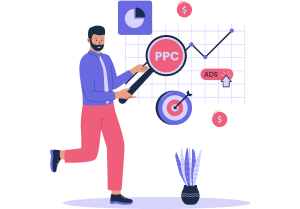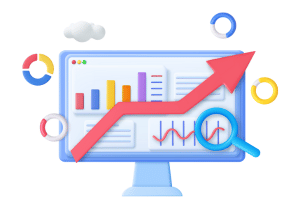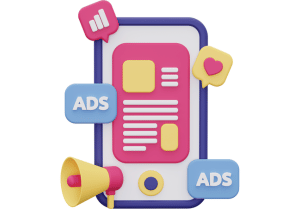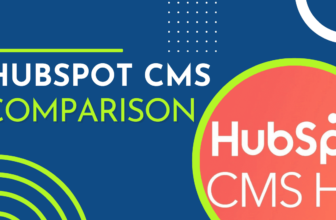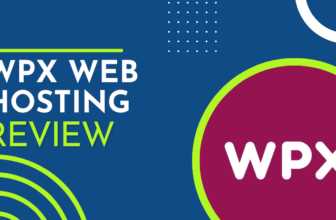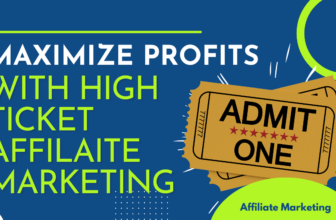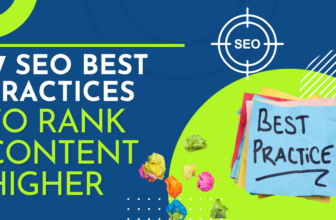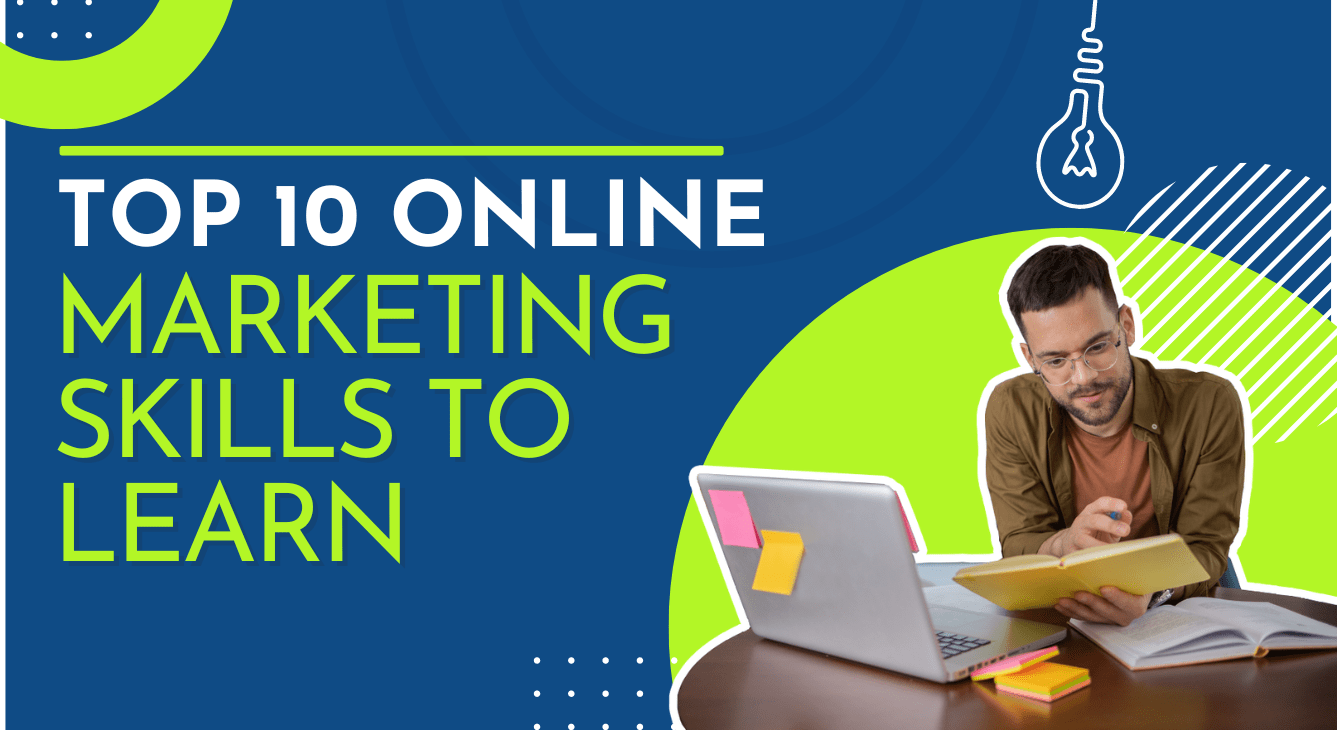
In today’s digital age, online marketing has become an essential skill for anyone looking to make their mark in the business world. From boosting website rankings through SEO to engaging audiences on social media platforms, the realm of online marketing offers a plethora of opportunities. If you’re eager to stay ahead of the curve and enhance your career prospects, it’s crucial to equip yourself with the right skills. In this blog post, we will explore the top 10 online marketing skills to learn, helping you navigate the ever-evolving landscape of digital marketing with confidence. So, let’s dive in and discover the key skills that can propel your online marketing success!
SEO, or Search Engine Optimization, is a crucial skill to master in the world of online marketing. It’s not just a buzzword; it can truly make or break a growing business. By understanding and implementing SEO techniques, entrepreneurs can effectively increase their website’s visibility on search engine results pages. This means that when potential customers search for relevant keywords, their website will be among the top results, driving more organic traffic and potential sales. SEO helps businesses establish credibility, build brand awareness, and stay ahead of the competition by optimizing their online presence. In today’s digital landscape, learning SEO is essential for any entrepreneur looking to succeed in online marketing.
Is Search Engine Optimzation Easy To Learn?
SEO can be a challenging skill to learn. It encompasses a wide range of techniques and strategies aimed at improving a website’s visibility and search engine ranking. However, with dedication and practice, anyone can acquire the necessary skills to understand and implement effective SEO practices. It may seem complex at first, but by investing time and effort into learning and staying up-to-date with industry trends, mastering SEO is definitely achievable.
How do I start learning SEO? And can I learn SEO on my own?
Understand the Basics: Start by familiarizing yourself with the fundamental concepts of SEO, such as keywords, search engine algorithms, and on-page optimization.
Study Relevant Resources: Explore reputable online sources, blogs, and forums that offer valuable insights into SEO techniques and best practices. Some recommended resources include Moz, Search Engine Land, and Google’s Webmaster Central Blog.
Keyword Research: Learn how to conduct keyword research to identify the terms and phrases people use when searching for information related to your website or business. Tools like Google Keyword Planner can assist you in this process.
On-Page Optimization: Master the art of optimizing your website’s on-page elements, including meta tags, headings, URL structure, and content. Ensure that your website is user-friendly and provides valuable information to visitors.
Technical SEO: Gain knowledge about technical aspects of SEO, such as website speed, mobile optimization, crawlability, and indexability. Implement best practices to enhance your website’s performance and visibility.
Link Building: Understand the importance of building high-quality backlinks to your website. Learn various link building strategies, such as guest blogging, influencer outreach, and content promotion, to improve your website’s authority.
Analyze and Track: Utilize tools like Google Analytics and Google Search Console to analyze your website’s performance, track keyword rankings, and identify areas for improvement. Regularly monitor your progress and make data-driven decisions.
Stay Updated: SEO is a dynamic field, so it’s crucial to stay updated with the latest trends and algorithm changes. Follow industry experts, attend webinars, and participate in SEO communities to stay informed.
Remember, learning SEO is an ongoing process, and practical application is key to mastering it. Start implementing the techniques you learn and adapt your strategies.
Pay per click (PPC) advertising is a type of search engine marketing where advertisers are charged a fee every time someone clicks on their ad. It’s a great way for businesses to boost their online visibility and drive targeted traffic to their website. With PPC, advertisers have control over their budget and can easily track the effectiveness of their campaigns. It’s a powerful tool that allows businesses to reach their desired audience and maximize their return on investment.
Benefits of PPC advertising
Immediate Visibility: PPC advertising offers businesses immediate visibility on search engine results pages. With PPC ads, businesses can quickly reach their target audience, making it an effective way to generate leads and increase website traffic. By paying only when users click on their ads, businesses can also ensure that they are getting the most out of their advertising budget.
Targeted Audience: With PPC, you can precisely target your desired audience by selecting specific keywords, demographics, locations, and devices. This ensures that your ads are displayed to the right people at the right time, increasing the chances of converting them into customers. By harnessing the power of PPC advertising, you can effectively reach your target audience and achieve your marketing goals.
Cost Control: One key advantage of utilizing the power of PPC is cost control. Advertisers have the flexibility to set the budget and can establish daily or monthly limits, allowing them to manage and control spending effectively. This ensures that they don’t exceed their desired advertising expenditure while still reaching their target audience.
Measurable Results: With detailed analytics and reporting provided by PPC platforms, businesses can track the effectiveness of their campaigns in real-time. These measurable insights allow for data-driven decisions, helping businesses optimize their advertising strategies and achieve better return on investment.
Is PPC hard to learn?
PPC, or pay-per-click advertising, may seem challenging to learn at first, but it’s a valuable skill for anyone interested in online marketing. Whether you’re a business owner looking to promote your products or services or simply curious about the buying funnel and how PPC fits into it, learning PPC can be advantageous. With practice and understanding of the key concepts, you can effectively leverage PPC campaigns to drive targeted traffic and achieve your marketing goals.
An effective PPC campaign involves keyword research to identify relevant keywords that align with your business goals and target audience, crafting compelling and relevant ad copy that entices users to click and visit your website, ensuring that the landing page associated with your PPC ads is relevant, user-friendly, and optimized for conversions and ongoing campaign monitoring.
Developing email marketing skills involves a combination of learning and practical application. By taking email marketing courses and actively practicing, individuals can enhance their understanding of email marketing strategies, techniques, and best practices. While it may require effort and dedication, email marketing can be learned effectively with the right resources and commitment.
Understanding email marketing
Email marketing is the practice of sending targeted messages to a group of individuals via email. It involves various strategies, such as building an email list, creating engaging content, and measuring campaign performance. By understanding the fundamentals of email marketing, you can lay a strong foundation for skill development.
Taking email marketing courses
To develop email marketing skills, consider enrolling in reputable email marketing courses. These courses provide structured learning materials, industry insights, and practical exercises to enhance your understanding. Look for courses that cover topics like email list building, segmentation, content creation, automation, and analytics.
Applying practical knowledge
While theoretical knowledge is essential, applying what you learn is equally important. Practice creating email campaigns, segmenting your audience, and analyzing campaign performance. By actively implementing your knowledge, you can gain hands-on experience and refine your skills.
Learning from industry experts
Stay updated with the latest trends and best practices in email marketing by following industry experts. Subscribe to newsletters, join online communities, and attend webinars or conferences to learn from experienced professionals. Engaging with the email marketing community can provide valuable insights and help you stay ahead

In today’s digital age, where information flows freely and competition is fierce, mastering the art of online data analysis is not just a valuable skill—it’s a prerequisite for success in the fast-paced world of online marketing. By harnessing the power of data, marketers can unlock insights, drive targeted campaigns, optimize content, adapt to changing trends, and ultimately, achieve measurable results. If you’re looking to elevate your online marketing game, investing in data analysis skills is a surefire way to stay ahead of the curve.
Why data analysis is an important online marketing skill to learn
Informed Decision Making: Data analysis empowers marketers to make informed decisions backed by concrete evidence rather than relying on intuition alone. By dissecting metrics such as website traffic, conversion rates, and customer demographics, marketers can uncover valuable insights into consumer behavior and preferences. These insights serve as a compass, guiding marketers towards strategies that resonate with their target audience.
Targeted Advertising: In the era of personalized marketing, generic mass advertising is no longer effective. Data analysis enables marketers to segment their audience based on various parameters such as age, gender, location, and interests. By understanding the unique characteristics of each segment, marketers can tailor their advertising campaigns to resonate with specific groups, thereby maximizing engagement and conversion rates.
Optimized Content Creation: Content is king in the digital realm, but creating content that resonates with your audience requires more than just creativity. Data analysis allows marketers to identify which types of content perform best, whether it’s blog posts, videos, infographics, or social media posts. By analyzing metrics such as engagement, shares, and comments, marketers can refine their content strategy to deliver the right message through the right channels.
Continuous Improvement: The digital landscape is constantly evolving, and what works today may not work tomorrow. Data analysis enables marketers to continuously monitor and evaluate the performance of their marketing efforts. By identifying trends and patterns in the data, marketers can adapt their strategies in real-time to stay ahead of the curve and maintain a competitive edge.
Measurable ROI: One of the biggest advantages of data-driven marketing is the ability to measure return on investment (ROI) accurately. By tracking key performance indicators (KPIs) such as customer acquisition cost (CAC), customer lifetime value (CLV), and conversion rates, marketers can quantify the impact of their marketing campaigns and optimize their spending accordingly.
Content marketing isn’t just another buzzword—it’s the cornerstone of successful online marketing strategies. Whether you’re a seasoned marketer or just dipping your toes into the digital waters, mastering the art of content marketing is a journey well worth embarking on.
What are the benefits of content marketing
Connecting with Your Audience: In a digital landscape cluttered with ads and noise, content marketing is your beacon of authenticity. It’s all about crafting content that resonates with your audience—whether it’s entertaining, educational, or downright inspiring. By delivering value through your content, you’re not just selling a product or service; you’re building genuine connections with your audience.
Building Brand Authority: Want to be seen as the go-to expert in your industry? Content marketing is your ticket to the top. By consistently sharing valuable insights, tips, and thought leadership content, you establish your brand as a trusted authority. When customers are seeking solutions, they’ll turn to the brand that’s been there for them every step of the way.
Driving Traffic and Engagement: Ever heard the phrase “content is king“? Well, it’s not just a catchy slogan—it’s the truth as long as it is trustworthy content! Compelling content is like a magnet, drawing in your target audience and keeping them hooked. Whether it’s through blog posts, videos, podcasts, or social media content, each piece you create is an opportunity to attract new visitors, spark conversations, and foster engagement.
Fueling Your SEO Strategy: Ah, the mysterious world of search engine optimization (SEO). Content marketing and SEO go hand in hand like peanut butter and jelly. Quality content not only keeps your audience engaged but also signals to search engines that your website is a valuable resource. By optimizing your content with relevant keywords and high-quality backlinks, you can climb the ranks of search engine results pages and increase your visibility online.
Driving Conversions: At the end of the day, every marketer’s ultimate goal is to drive conversions. Whether it’s making a sale, capturing leads, or driving sign-ups, content marketing plays a pivotal role in nudging your audience towards action. By crafting content that speaks to their needs and pain points, you can gently guide them down the path towards conversion without resorting to pushy sales tactics.
Whether you’re running your own small business, hustling to grow your entrepreneurial endeavors, or just starting out as an influencer hoping to make it big, understanding the magic of social media marketing can open up a world of possibilities. It’s like having a secret key that unlocks tons of opportunities, helping you grow, connect, and succeed in the wild world of the internet.
Connecting with Your Audience: Social media isn’t just about posting cat memes and selfies—it’s a powerful tool for building meaningful connections with your audience. Whether it’s through Facebook, Instagram, Twitter, or LinkedIn, social media platforms provide a direct line of communication to your target demographic. By engaging with your audience in real-time, responding to comments, and sparking conversations, you can cultivate a loyal following that’s eager to engage with your brand.
Increasing Brand Awareness: In a crowded digital marketplace, standing out from the crowd is no easy feat. That’s where social media comes in. With billions of active users worldwide, social media platforms offer unparalleled opportunities to amplify your brand’s visibility and reach. By crafting compelling content, leveraging hashtags, and engaging with influencers, you can expand your brand’s presence and attract new followers who might otherwise never discover your business.
Driving Website Traffic: Your website is the digital storefront of your business, and social media serves as the gateway. By strategically sharing links to your website content, products, and services on social media platforms, you can drive targeted traffic to your site and increase conversions. Whether it’s through eye-catching visuals, compelling calls-to-action, or shareable blog posts, social media marketing empowers you to funnel qualified leads directly to your website.
Boosting Customer Engagement and Loyalty: In the age of social media, customer loyalty isn’t just about the quality of your products or services—it’s about the quality of your interactions. Social media marketing enables you to foster a sense of community around your brand, engaging with customers on a personal level, soliciting feedback, and addressing their concerns in real-time. By nurturing these relationships, you can cultivate brand advocates who not only champion your products but also recommend them to their networks.
Measuring Success and Iterating Strategies: The beauty of social media marketing lies in its measurability. With a wealth of analytics tools at your disposal, you can track key performance indicators such as engagement, reach, and conversion rates in real-time. By analyzing these metrics, identifying trends, and iterating your strategies accordingly, you can optimize your social media marketing efforts for maximum impact and ROI.
In simple terms, conversion rate optimization is the process of fine-tuning your website or digital assets to increase the percentage of visitors who take a desired action—whether it’s making a purchase, signing up for a newsletter, or filling out a contact form. Think of it as turning your online presence into a well-oiled machine that not only attracts visitors but also persuades them to take action, ultimately driving more value for your business.
What can CRO do for your business?
Turning Visitors into Customers: Picture this: you have a steady stream of visitors to your website, but they’re just not taking the plunge and making a purchase. That’s where conversion rate optimization comes in. By fine-tuning elements like your website layout, call-to-action buttons, and checkout process, you can transform casual browsers into paying customers, boosting your bottom line in the process.
Maximizing Your Marketing Efforts: You’re putting in the time and effort to drive traffic to your website through social media, email campaigns, and SEO. But what’s the point if those visitors aren’t converting? Conversion rate optimization ensures that every click, every visit, and every dollar you spend on marketing yields the highest possible return on investment. It’s about making every interaction count and squeezing the most value out of your marketing efforts.
Understanding Your Audience Better: Ever wondered what makes your audience tick? CRO isn’t just about tweaking buttons and colors—it’s about getting inside the minds of your customers. By analyzing user behavior, conducting A/B tests, and gathering feedback, you gain invaluable insights into what resonates with your audience and what leaves them cold. Armed with this knowledge, you can tailor your marketing strategies to better meet their needs and preferences.
Staying Ahead of the Competition: In the fast-paced world of online marketing, staying ahead of the competition is crucial. Conversion rate optimization allows you to stay nimble, adapting to changes in consumer behavior, technology, and market trends. By constantly testing, iterating, and optimizing your conversion funnel, you can outmaneuver your competitors and emerge as the top choice in your niche.
Driving Sustainable Growth: Sure, you could pour money into ads and hope for the best. But sustainable growth comes from optimizing every aspect of your online presence for maximum conversion. Whether it’s your landing pages, product descriptions, or email campaigns, conversion rate optimization empowers you to fine-tune every touchpoint in the customer journey, driving sustained growth and long-term success.
Ever wondered how your favorite brands always seem to pop up on your phone just when you need them most? That’s the magic of mobile marketing at work. In a nutshell, mobile marketing is all about connecting with your audience through their smartphones and tablets, whether it’s through apps, mobile-friendly websites, or targeted ads. But why is it so important, you ask? Well, in today’s fast-paced world, where nearly everyone has a smartphone glued to their hand, mastering mobile marketing isn’t just a smart move—it’s essential for staying relevant and reaching your audience where they are.
By understanding the unique opportunities and challenges of mobile marketing, you can unlock new avenues for reaching and engaging your audience, driving growth and success for your business.
Understanding the benefits of mobile marketing
The Rise of Mobile: It’s no secret that mobile devices have revolutionized the way we interact with the digital world. From browsing the web to shopping online, more and more people are turning to their smartphones and tablets to fulfill their needs. As a marketer, tapping into this mobile-centric landscape is essential for reaching your target audience where they spend most of their time.
Reaching Your Audience Anytime, Anywhere: One of the biggest advantages of mobile marketing is its unparalleled reach. With mobile devices always at hand, you have the power to connect with your audience anytime, anywhere. Whether they’re commuting to work, waiting in line, or relaxing at home, mobile marketing allows you to deliver your message directly into the palms of your audience, ensuring maximum visibility and engagement.
Creating Personalized Experiences: Mobile devices offer a wealth of opportunities for delivering personalized experiences to your audience. From location-based targeting to personalized push notifications, mobile marketing enables you to tailor your messages and offerings to individual preferences and behaviors. By delivering relevant and timely content, you can forge deeper connections with your audience and drive higher engagement and conversion rates.
Optimizing for Mobile-Friendly Experiences: In today’s mobile-first world, having a mobile-friendly website and marketing assets is no longer optional—it’s essential. Mobile optimization ensures that your content is accessible and user-friendly across all devices, providing a seamless experience for mobile users. From responsive web design to mobile-optimized email campaigns, investing in mobile marketing ensures that you don’t miss out on valuable opportunities to connect with your audience.
Staying Ahead of the Curve: As technology continues to evolve, so do consumer expectations. By mastering mobile marketing, you position yourself at the forefront of digital innovation, ready to adapt to changing trends and technologies. Whether it’s embracing mobile apps, leveraging augmented reality, or exploring new advertising formats, staying ahead of the curve ensures that your brand remains relevant and competitive in today’s digital landscape.
In today’s digital landscape, where attention spans are fleeting and competition is fierce, video marketing has emerged as a powerhouse strategy for brands looking to stand out and make an impact.
Video marketing involves using videos to promote and market your products or services, engage with your audience, and drive conversions. From engaging product demos and entertaining tutorials to compelling brand stories and behind-the-scenes glimpses, video marketing offers a dynamic and immersive way to connect with your audience like never before. And with the explosive growth of video-sharing platforms and social media channels, the importance of video marketing has never been clearer. In today’s fast-paced world, where visual content reigns supreme, mastering the art of video marketing is essential for brands looking to cut through the noise, capture attention, and leave a lasting impression on their audience.
How video marketing can help boost your business
Capturing Attention: In a sea of static content, video stands out like a shining star. With its dynamic visuals, engaging storytelling, and immersive experience, video has the power to captivate audiences like never before. Whether it’s a captivating product demo, an entertaining tutorial, or a behind-the-scenes peek into your brand, video grabs attention and keeps viewers glued to the screen.
Boosting Engagement: Want to spark conversations and foster connections with your audience? Look no further than video marketing. Studies show that video content generates higher engagement rates than any other type of content. From likes and shares to comments and retweets, video sparks meaningful interactions and keeps your audience coming back for more.
Conveying Emotion: They say a picture is worth a thousand words, but a video? It’s worth a million. Video allows you to convey emotion, personality, and authenticity in a way that text and images simply can’t match. Whether it’s humor, inspiration, or heartfelt storytelling, video evokes powerful emotions that resonate with your audience and leave a lasting impression.
Increasing Conversions: At the end of the day, every marketer’s ultimate goal is to drive conversions. And guess what? Video marketing delivers. Studies show that including video on your website can increase conversion rates by as much as 80%. Whether it’s enticing viewers to make a purchase, sign up for a newsletter, or download a freebie, video is a powerful tool for nudging viewers towards action.
Expanding Reach: With the rise of social media and video-sharing platforms like YouTube, Vimeo, and TikTok, video has become more accessible and shareable than ever before. By creating compelling video content that resonates with your audience, you can expand your reach far beyond your website and attract new followers, subscribers, and customers from around the globe.
Influencer marketing, where the power of persuasion meets the reach of social media. Influencer marketing is all about collaborating with individuals who have a strong online presence and a dedicated following—aka influencers—to promote your brand, products, or services to their audience. But why is it such a big deal?
Well, in today’s digital age, where trust is currency and attention is scarce, influencer marketing offers a unique opportunity for brands to connect with their target audience in a meaningful and authentic way. By tapping into the credibility, authenticity, and reach of influencers, brands can cut through the noise, build trust, drive engagement, and ultimately, achieve their marketing goals. Whether you’re a budding entrepreneur or a seasoned marketer, mastering the art of influencer marketing is essential for staying relevant, reaching new audiences, and driving success in the ever-evolving digital landscape.

Why should influencer marketing be part of your online growth strategy?
Building Trust and Authenticity: In a world cluttered with ads and sponsored content, trust is the currency that sets brands apart. Influencer marketing allows brands to leverage the trust and credibility that influencers have already established with their audience. By partnering with influencers whose values align with your brand, you can tap into their authenticity and credibility to connect with your target audience in a genuine and meaningful way.
Expanding Reach and Visibility: Influencers have the power to reach vast audiences across social media platforms, blogs, and other digital channels. By partnering with influencers whose followers match your target demographic, you can expand your brand’s reach and visibility far beyond your own network. Whether it’s through sponsored posts, product reviews, or brand collaborations, influencer marketing allows you to amplify your message and attract new customers. Collaborating with an influencer can help to make your content go viral.
Driving Engagement and Conversions: Influencers have a unique ability to engage their audience and inspire action. Whether it’s through compelling storytelling, authentic product recommendations, or interactive content, influencers have the power to drive engagement and conversions like no other. By partnering with influencers who resonate with your target audience, you can leverage their influence to encourage followers to take action, whether it’s making a purchase, signing up for a newsletter, or attending an event.
Staying Relevant and Competitive: In today’s fast-paced digital landscape, staying relevant and competitive is essential for brands looking to thrive. Influencer marketing allows brands to stay ahead of the curve by tapping into the latest trends and emerging platforms. By partnering with influencers who are at the forefront of their niche or industry, you can position your brand as innovative and forward-thinking, attracting attention and staying top-of-mind with your target audience.
Measuring Impact and ROI: One of the biggest advantages of influencer marketing is its measurability. Unlike traditional forms of advertising, influencer marketing allows brands to track the impact of their campaigns in real-time. By monitoring metrics such as engagement rates, click-through rates, and conversion rates, brands can measure the effectiveness of their influencer partnerships and optimize their strategies for maximum ROI.
Why is it important to keep learning new online skills?
In conclusion, navigating the vast landscape of online marketing requires a diverse skill set that encompasses everything from search engine optimization (SEO) to social media mastery. In this digital age where competition is fierce and attention spans are fleeting, honing these top 10 online marketing skills is not just beneficial—it’s essential for success.
From understanding the intricacies of SEO to leveraging the power of social media, each skill plays a crucial role in driving traffic, engaging audiences, and ultimately, achieving your marketing objectives. Whether you’re a seasoned marketer or just starting out, embracing these skills empowers you to adapt to the ever-changing digital landscape, connect with your audience on a deeper level, and stay ahead of the curve.
So, whether you’re diving into the world of content marketing, mastering the art of email marketing, or exploring the potential of influencer marketing, remember that continuous learning and adaptation are key. By staying curious, embracing new technologies, and honing your craft, you’ll be well-equipped to navigate the complexities of online marketing and thrive in the digital realm. Here’s to unlocking the endless possibilities of online marketing and charting a course towards success!
16


